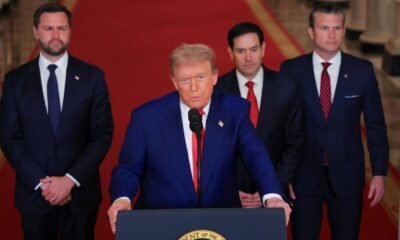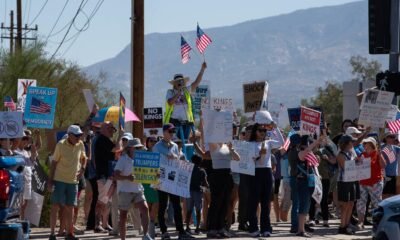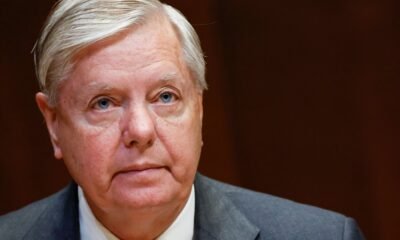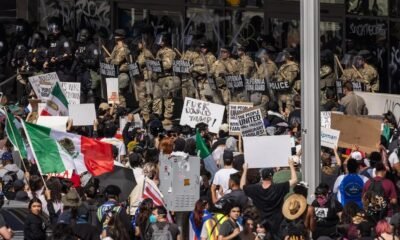Business
Trump Steps Back from Auto Tariffs as Trade Tensions Escalate, Treasury Secretary Reveals

Treasury Secretary Scott Bessent announced a potential relief on auto tariffs slated for Tuesday, coinciding with President Donald Trump’s visit to Michigan, marking his first 100 days in office.
Bessent, along with White House Press Secretary Karoline Leavitt, indicated that Trump is expected to sign an executive order aimed at easing import taxes for domestic car manufacturers. The current 25% levy on vehicles and auto parts has been in effect since early April.
While specific details on the tariff relief were not disclosed, Bessent emphasized the administration’s intent to reshore American auto manufacturing, stating, “The goal here is to bring back high-quality industrial jobs to the U.S.”
During a series of press conferences commemorating the 100-day milestone of Trump’s second administration, Bessent and Leavitt defended the president’s trade policy.
Investors and businesses have expressed anxiety since Trump declared a national emergency regarding foreign trade, introducing extensive tariffs on various nations. Following market instability that resulted in significant financial losses, Trump paused these levies for 90 days. However, tariffs on Chinese goods have escalated to 145%, while most other countries are subject to a 10% baseline tax.
As of a month since the tariffs’ implementation, Bessent revealed that no new agreements have been finalized with any of the 17 trading partners, excluding China. He indicated that Trump’s strategy involves creating “strategic uncertainty” to secure favorable trade terms.
“The aperture of uncertainty will be narrowing as we approach announcing deals, though certainty can complicate negotiations,” Bessent added.
Responding to inquiries about trade discussions with China, Bessent refrained from providing specifics, noting that China has imposed 125% tariffs on U.S. goods and claimed a lack of substantial negotiation efforts.
Bessent expressed confidence that the Chinese tariffs would backfire on China, given the significant imbalance in trade volume between the two nations.
Public support for Trump’s economic strategies has recently declined, as shown in various surveys.
In the wake of reports suggesting Amazon would address rising prices due to tariffs, Leavitt called the move a “hostile and political act,” prompting a swift denial from Amazon.
Amid concerns about potential economic repercussions, Bessent assured that “tax cuts are coming.” He confirmed recent discussions with congressional Republicans regarding a budget reconciliation package centered on extending Trump’s 2017 tax law.
Key components of this proposal include reviving full business expensing for investments in equipment and factories. “If you bring your factory back, you can fully expense the equipment and the building,” Bessent concluded.


















